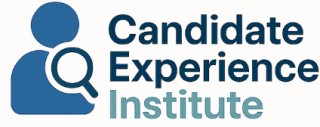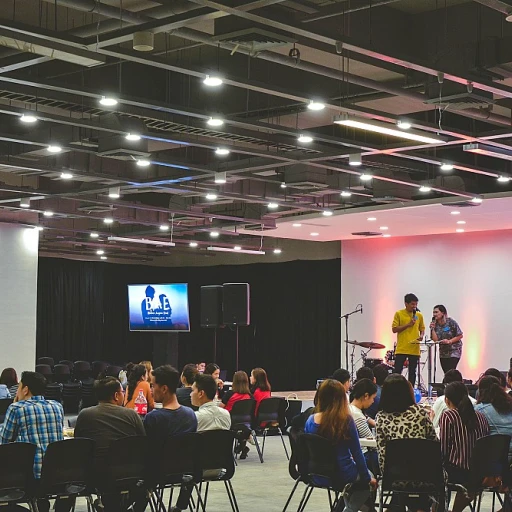Understanding the Candidate Experience
Decoding the Aspects of Candidate Interaction
The concept of candidate experience has emerged as a focal point in recruitment strategies, emphasizing the impact of every interaction a potential hire has with a company. This experience encompasses a wide range of touchpoints, from initial awareness of the job opportunity to the final stages of onboarding. Each step in the process can significantly shape the perception of the organization.
Understanding the intricacies of candidate experience involves recognizing how the recruitment process and the accompanying interactions influence a candidate's decision-making. This includes evaluating how candidates are treated during their journey and the efficiency of the communication involved.
Furthermore, the perception candidates develop through their experience can affect the company's brand reputation, influencing future potential candidates and even impacting employee morale. A positive candidate experience fosters a good impression, enhancing customer satisfaction and loyalty, even if the outcome isn’t favorable for the candidate.
To achieve this, organizations are increasingly relying on well-developed system processes, such as ticketing systems, to manage candidate inquiries effectively. Utilizing tools like help desk and service desk software streamlines the process flow, ensuring that support tickets are resolved efficiently. This approach not only boosts the candidate’s journey but also aids in alleviating the burden on the HR team, ultimately leading to a more organized recruitment framework.
The Role of Design Process in Recruitment
The Intersection of Recruitment and Design
In today's competitive job market, the recruitment process is more than just filling a position—it's about creating an experience that reflects positively on your organization. The design process plays a pivotal role here, shaping how candidates interact with your company from their first point of contact to the final offer. The design process in recruitment focuses on constructing an intuitive, seamless journey for both the hiring team and candidates. This requires a blend of strategic planning and innovative thinking, often seen in the deployment of a robust ticketing system. Such systems serve as the backbone for managing communication effectively, ensuring every candidate interaction is logged, tracked, and addressed in a timely manner. Implementing a thoughtful design process in recruitment can significantly enhance customer (or candidate) satisfaction. By leveraging management software and help desk tools, organizations can streamline requests that range from initial job inquiries to follow-up responses. These systems, when utilized effectively, help create support tickets automatically, ensuring the hiring process flows smoothly. For instance, employing a service desk with a comprehensive ticketing process allows recruitment teams to handle large volumes of inquiries without feeling overwhelmed. It also aids in the management of candidate data, providing recruiters with a clear overview of each candidate's journey through the recruitment funnel. Moreover, efficient service management systems transform the process flow, enabling recruitment teams to respond to candidate inquiries promptly, helping reduce waiting time and enhance the overall candidate experience. When recruitment teams adopt such management systems, they foster a culture of efficiency and promptness that candidates appreciate. Exploring best practices for optimizing candidate experience involves identifying pain points in the journey and finding ways to address them using technology. The integration of project management tools with ticketing systems further supports teams in staying organized and focused, ensuring that no candidate request goes unnoticed. Ultimately, the application of a solid design process in recruitment directly influences the success of a ticketing system. By prioritizing key elements such as user experience, data management, and time efficiency, organizations will succeed in creating a recruitment process that reflects a commitment to excellence, aligning with the principles discussed in enhancing candidate experience.Tracking Phases of the Design Process in a Ticketing Form
Implementing Tracking in a Ticketing Form
Tracking the various phases of the design process through a ticketing form is a fundamental strategy for enhancing the candidate experience. This system aids in monitoring specific steps, ensuring efficient communication between team members and candidates. By doing so, organizations can efficiently manage service requests and enhance the overall process flow. A well-designed ticketing system serves as a crucial component in managing support tickets throughout the recruitment journey. It captures crucial ticket data, which can be leveraged for improving service desk operations and enhancing customer satisfaction. The challenge lies in developing a ticketing process that can seamlessly integrate data management with the human element inherent in customer service. By employing effective ticket management and help desk software, such as service management platforms, companies can streamline their recruitment processes. The right tools can facilitate better ticket handling, enabling the team to manage requests in a timely manner. User-friendly systems allow users to create and track their requests, thereby offering transparency and improving trust. Integration of such systems within the recruitment workflow warrants meticulous planning. The project management aspect demands an understanding of best practices in order to optimize the system's utility. Free trials of management software can be an excellent way for organizations to determine their specific needs without premature commitment. Incorporating a help desk solution with a robust knowledge base will empower both the team and candidates. This support system ensures that both parties have access to essential information at all times, resulting in increased efficiency and a boost in candidate experience. For an in-depth look at the strategic benefits of tracking tools in recruitment processes, consider reading about the depth of USCIS background checks. This exploration provides valuable insights into how precise tracking can vastly improve the candidate's journey through the hiring process.Benefits of an Efficient Ticketing System
Advantages of Implementing a Sophisticated Ticketing System
An effective ticketing system can be transformative in enhancing the candidate experience. When designed properly, these systems can streamline communication and offer numerous benefits that both the recruitment team and candidates will appreciate. Let's explore how an efficient ticketing system can make a meaningful impact.- Enhanced Communication and Coordination: By employing a ticketing system, recruitment teams can manage candidate requests and inquiries with greater precision. Support tickets help address candidate issues promptly, ensuring candidates feel heard and valued throughout the process.
- Efficiency in Process Flow: Implementing automated workflows within the ticketing process ensures that candidate requests move through the necessary stages without delay. This level of process management improves response time and reduces the likelihood of manual errors.
- Data-Driven Decision Making: A sophisticated ticket management system allows for the gathering and analysis of ticket data. This information helps recruitment teams identify patterns, predict potential bottlenecks, and optimize service management.
- Improved Customer Satisfaction: Giving candidates a personalized experience is crucial for ensuring engagement. The service desk, when complemented with a robust knowledge base, becomes a powerful tool in providing targeted support, ultimately improving overall customer satisfaction.
- Streamlined Project Management: Ticket data can be utilized to enhance project management by providing insights into team performance and resource allocation. Efficient desk ticketing systems also help teams adjust priorities based on urgency and impact.
- Scalability and Adaptability: As organizations grow, so do the demands on recruitment processes. Ticket handling systems are designed to scale effortlessly, allowing for modular upgrades and adjustments needed to match evolving business requirements.
Challenges in Implementing Tracking Systems
Navigating Implementation Obstacles
Implementing an effective tracking system designed to enhance the candidate experience through a ticketing system often presents several challenges. Recognizing these hurdles early can facilitate smoother integration and execution. Firstly, integration with existing systems is a common barrier. Many organizations already employ a variety of tools for project management and customer support. Ensuring that the new ticket management software harmonizes with these pre-existing systems without disrupting current workflows is vital. Compatibility issues can lead to data silos, human error, and inefficiencies. Additionally, securing buy-in from stakeholders and team members is crucial. Change management is an integral part of any enhancement to the candidate experience. Without proper communication and training, team members may struggle to adapt to new processes or software. To counteract resistance, it can be beneficial to demonstrate the long-term benefits of enhanced candidate service and desk ticketing transparency. Time management is another frequent challenge during the implementation phase. Developing a coherent process flow for support tickets requires time and dedication from multiple departments. Yet, without a strategic timeline, there is a risk of rushing the deployment, leading to faults that could impede user satisfaction. Moreover, assessing the costs involved, both in terms of time and resources, can be daunting. While some platforms offer a free trial, the true expense comes from customizing and scaling the ticketing process to meet specific organizational needs while ensuring customer satisfaction. Ultimately, a successful transition relies heavily on the ability to create a robust knowledge base that supports desk tickets and enhances user experience across the support system. By adequately addressing these challenges, organizations can craft a streamlined and effective ticketing system that enhances both the design process and overall candidate experience.Best Practices for Optimizing Candidate Experience
Creating a Seamless Experience with Best Practices
The candidate experience you provide significantly impacts your recruitment outcomes. Implementing best practices is crucial to ensure your ticketing system enhances the process rather than hinders it. Here are some strategies to consider:- Streamline the Process Flow: Ensure that your ticket management software is efficient and user-friendly. Simplifying the ticketing process not only benefits your HR team but also the candidates, reducing unnecessary complexity and delays.
- Effective Ticket Handling: Assign a dedicated team to manage support tickets quickly and efficiently. Timely responses to candidate inquiries demonstrate professionalism and improve candidate satisfaction.
- Utilize a Knowledge Base: A comprehensive knowledge base can provide candidates with immediate answers to common questions, reducing the number of requests directed to your help desk or service desk.
- Leverage Ticket Data: Use ticket data to identify common issues and areas for improvement within your recruitment process. Analyzing this data allows you to make informed decisions that enhance both the candidate and recruiter experience.
- Implement Feedback Mechanisms: Encourage candidates to provide feedback on their experience. This can help you fine-tune your systems to better meet their expectations and address any pain points promptly.
- Regular Training and Updates: Ensure your support team is well-trained in using the ticketing system and is aware of the importance of maintaining a positive candidate experience. Regular updates on system functionality can also prevent potential hiccups in the process.
- Offer a Free Trial: If you're considering new ticket management software, a free trial can help you assess its effectiveness and suitability for your organization's requirements.












